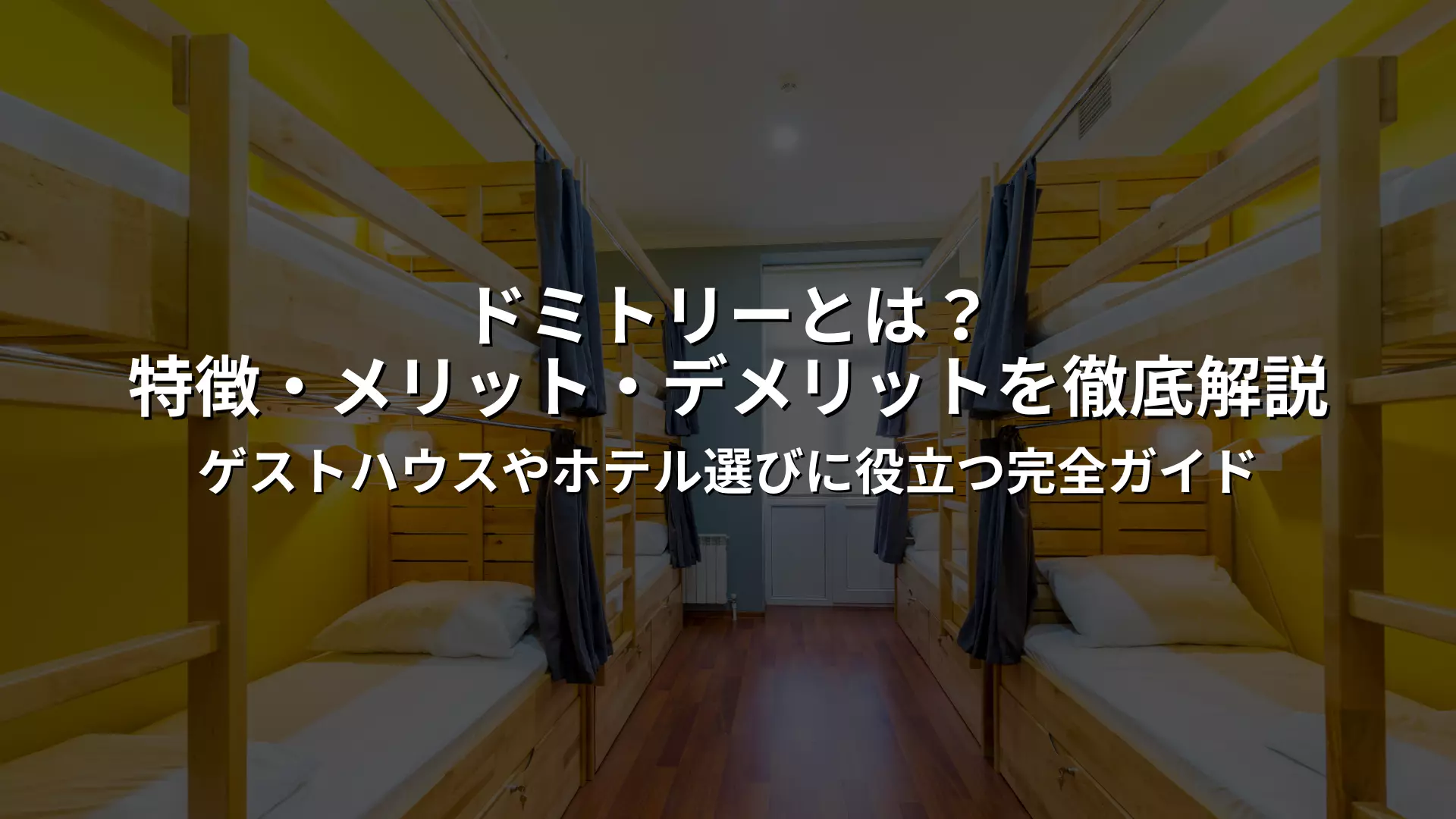Why it's best to start looking for a property 1-2 months before your planned move date
Ideally, you should start looking for a rental property one to two months before your planned move-in date. This is a guideline that applies year-round, not just to specific seasons, as it allows you the necessary time between signing a contract and moving in. Starting at this time makes it easier to take advantage of new property listings from real estate companies and the latest information posted on their websites, increasing your chances of finding a room that meets your desired criteria. If you start too early, you risk paying rent twice, but if you start too late, the best properties will be booked up, so it's important to strike a balance.
Below we will explain the availability of properties in the market, the contract process, and points to be careful of when searching too early or too late.
Market availability and contract timing
Rental properties typically begin looking for tenants once the move-out date has been decided, with many properties being put on the market one to two months before the available move-in date. This applies not only to busy periods such as the spring new home season and autumn job transfer season, but also to off-season periods. Starting your search at this time allows you to access the latest property information and makes it easier to compare properties that meet your desired conditions, such as rent, floor plan, and facilities. It also gives you time to plan out the necessary preparations before moving, such as signing a contract, tenant screening, arranging for a moving company, and signing up for internet and utilities.
Being too early or too late will put you at a disadvantage, so it's important to be aware of the appropriate time to do so by counting backwards from your move-in date.
If you rent too early, you risk paying double rent.
If you start looking for a property too early and end up signing a contract, you may end up paying "double rent" - rent for your current room and rent for your new home at the same time. In rental contracts, rent generally starts on the contract date or the move-in date, and the more popular the property, the more difficult it is to negotiate an extension on the move-in date. Especially during busy periods, the speed from application to contract is fast, and it may not be possible to set a move-in date with ample leeway. For this reason, it is important to check with the real estate company before signing a contract to see if it is possible to adjust the move-in date or the rent start date, and to make efforts to avoid unnecessary expenses.
By planning your search, you can secure your ideal room while keeping costs down.
If you wait too long, there is a chance that the property you want will no longer be available.
If you start looking for a property just before moving, there are many cases where a room that meets your desired conditions has already been contracted. It is not uncommon for rental properties with good conditions, such as being close to the station, newly built, or with rent lower than the market rate, to be sold within a short period of time after being listed on a real estate company's website. Furthermore, if you start looking late, multiple procedures such as booking a viewing, applying to move in, signing a contract, and arranging for a moving company will be concentrated in a short period of time, which can be a major burden on your schedule. As a result, you may end up compromising and signing a contract without being able to fully compare and consider options.
By starting your search 1-2 months in advance, you will be able to secure options and plan your move-in preparations in advance.
Counting backwards from your moving date! Example schedule for searching for a property
In order to find the ideal rental property, it is essential to have a planned schedule that works backwards from your moving date.
Searching for an apartment begins with organizing your desired conditions, and involves many steps, such as consulting with a real estate agent, viewing the property, applying for a lease, signing a contract, canceling your current lease, signing contracts with a moving company and infrastructure, changing your address, and packing. Doing all of these steps in a short space of time increases the chance of overlooking desired conditions or missing steps. Therefore, it's more efficient to start two months before your move and proceed step by step.
In this chapter, we will introduce the specific steps to take from two months before moving to one to two weeks before moving, and explain the key points to keep in mind to ensure a smooth process from property hunting to moving in.
Two months before moving: Decide your desired conditions, budget, and area
Two months before moving, start by organizing your desired conditions. Identify the conditions you cannot compromise on and the conditions you are willing to compromise on, such as upper and lower rent limits, floor plan, area, age of the building, and facilities. Setting a budget at this time will allow you to efficiently narrow down the properties introduced on rental information sites and by real estate agencies. It is also a good idea to check the transportation access and surrounding environment of the area you will be living in.
By clarifying your requirements, you can make meetings with real estate agents and viewings go more smoothly, making it easier to find your ideal apartment. It is also effective to gather information not only online, but also by walking around the area and checking it out.
One and a half months before moving: Consult with a real estate agent and start viewing properties
About two months before your move, it's time to start looking for a rental property and clarify your desired conditions. Organize your "non-negotiable" and "compromiseable" conditions, such as upper and lower limits on rent, floor plan, age of the building, distance from the station, surrounding town or area, and necessary amenities. When it comes to rent, it's especially important to consider the total amount, including management fees and parking fees.
Once you have decided on your desired conditions, it will be easier to search for potential properties on real estate company websites and rental information services. It is also effective to walk around the area on a weekend or during rush hour to check the town's atmosphere and convenience. If you solidify your conditions at this stage, you will be able to receive accurate property introductions when consulting with a real estate company, and the process from viewing to signing a contract will be smoother.
One month before moving: Application, contract, and cancellation of current residence
Once you have solidified your desired conditions and budget, it's time to start consulting with a real estate agent. By making an appointment in advance, you can efficiently introduce the latest property information that meets your desired conditions. From this point on, actively start viewing properties, checking not only the rent and floor plan, but also sunlight, ventilation, soundproofing, the condition of the facilities, and the surrounding environment on-site. When viewing properties, it's important to take notes and photos to make it easier to compare.
If you consult with multiple real estate agencies, you may be able to get different property information in the same area. Also, if you find a property you like at this stage, consider applying for it sooner than other options. This is a particularly important period in your property search, as it is the period when you are most likely to find a room that meets your requirements.
3 weeks before moving: Arrange moving company and infrastructure contract
Three weeks before the move, you should select a moving company and make infrastructure contracts. Get quotes from multiple moving companies and compare prices, work content, and schedules before making your selection. Reservations tend to fill up quickly, especially during busy periods, so you need to make arrangements early. This is also the time to sign up for essential utilities such as electricity, gas, water, and internet at your new home.
It's important to schedule with ample time, as internet connection work may be required, and the installation date may be after the day you move in. Additionally, if you also make arrangements around this time to forward your mail, schedule the disposal of bulky waste, and organize unnecessary items, your moving day will go smoothly.
1-2 weeks before moving: Change your address and start packing
One to two weeks before your move, it's time to start packing and completing the necessary procedures to change your address. Plan ahead and submit your moving-out notification to your local government office, as well as change your address on your driver's license, bank account, credit card, insurance company, and workplace. Don't forget to also submit your mail forwarding notification to the post office.
When packing, start with items you use least often and clearly label each box with its contents and where it will be placed in your new home to increase efficiency. It's also a good idea to organize your refrigerator and keep essentials you'll need on moving day (valuables, clothes, toiletries, chargers, etc.) in a separate place. Planning ahead and preparing will reduce the burden on moving day and allow you to start living comfortably as soon as you move in.
Search from 6,630 rooms of 990 properties
Advantages and disadvantages of property hunting at different times
When searching for a rental property, even if you only have the same period of time, "one to two months before your planned move date," market conditions and property trends can change significantly depending on the time of year. There are times, such as new home season, when there are plenty of properties to choose from, and times when it's the off-season and it's easier to negotiate rent. On the other hand, in seasons when competition is fierce or when there are fewer properties available, you may need to act quickly and make compromises in order to find a room that meets your desired conditions. By utilizing real estate agent information and understanding the characteristics of the time of year that suits your moving schedule, you can efficiently move through the process of signing a contract.
Here, we will divide the year into four periods and explain the advantages and disadvantages of property hunting in each period.
January to March: New home season means plenty of properties available, but competition is fierce
January to March is the busy season when people start preparing for new lives, such as continuing their education, getting a job, or transferring to a new job, and it is the time of year when there are the most rental properties available. Real estate companies' websites and information services are constantly listing new properties, making it easier to find a room that meets your desired conditions. However, due to high demand, competition is fierce, and it is not uncommon for properties with good conditions to receive an application within a few days of viewing. Rent tends to be set slightly higher than the market rate, making rent negotiations often difficult.
If you are looking at a property during this period, the key to a smooth move-in is to clarify your desired conditions in advance and have the necessary documents and deposit money ready so that you can make an immediate decision after viewing the property.
April to May and September to October: Transfer and job change season with good properties available
April to May and September to October are times when many people move due to job transfers or career changes. For this reason, rental properties with favorable conditions, such as properties close to stations, recently built, and with spacious floor plans, are more likely to come on the market, making this a good time to look for a room that prioritizes specific criteria. Also, since the peak of the new home season has passed, rents for some properties tend to settle down somewhat. On the other hand, properties for families or in popular areas tend to be under contract quickly, so you need to act quickly.
During this time, many properties will be vacated due to transfers or job changes, so it is important to consult with real estate companies frequently to keep up with the latest information. If you have some leeway in your schedule, this is also a good time to compare multiple properties and choose the best deal.
June to August: Off-season, a chance to negotiate rent or find free rental properties
June to August is the slow season for the rental market, and there is relatively little competition when searching for a property. This means that properties offering rent negotiations, reduced key money, and free rent (free rent for a certain period after moving in) are more likely to appear. While you can take your time searching for a room that meets your desired criteria, there are fewer new properties available compared to peak seasons, so your options may be limited. Also, while traveling to view properties in the middle of summer can be a hassle, it is also a time when you can easily utilize your negotiating skills, as landlords who want to shorten vacant periods often offer flexible terms.
If you are looking at this time, you may be able to prioritize your requirements and gain cost benefits in exchange for some compromises.
November to December: Take your time searching, but there are fewer properties available
November and December are a time when there is relatively little demand for moving, allowing you to proceed with your property search in a relaxed manner. It is easier to make viewing reservations than during busy periods, and real estate agents are more likely to take the time to make proposals. On the other hand, the number of new properties tends to be the lowest of the year, making it difficult to find a property that perfectly matches your desired conditions. Also, be aware that there may be delays in contract and move-in procedures due to the New Year's holiday period.
If you are looking during this time, it is important to set somewhat broad criteria and plan your search with a long-term schedule. If the property has been vacant for a long time, there may be room to negotiate the rent and contract terms.
Preparations and points to do before searching for a property
To ensure a smooth rental property search, it's important to make some preparations before you start moving, one to two months before your planned move date. By clarifying your desired conditions and setting priorities, and gathering the latest property information on the internet and rental information sites, you can efficiently narrow down your options. It's also essential to prepare your clothing, belongings, and checklist when you actually visit a real estate agency to view the property.
If you don't organize your information, gather information, and prepare in advance, you may overlook certain conditions when viewing or signing the contract, or you may end up regretting your decision after moving in. Here we will explain three preparation points you should keep in mind to find your ideal apartment.

Prioritize and organize your preferences
Before you start looking for a property, it's important to first make a list of your desired conditions and prioritize them. Organize things like maximum rent, floor plan, age of the building, distance from the station, surrounding environment, and necessary amenities into "essential conditions" and "desired conditions." For example, setting specific numerical values and items such as "rent under ¥X,000," "within a 10-minute walk from the station," and "with an auto-lock" will help you communicate your requirements accurately when consulting with a real estate agent. Relaxing your rent and floor plan requirements a little may also broaden your options.
By clarifying your requirements in advance, you can reduce the time you spend wondering when viewing properties and make it easier to choose the best property within a limited time frame.
Gather information in advance on the internet or rental information sites
An efficient property search requires prior research on the internet and rental information sites. By using real estate agency official websites and portal sites, you can compare average rents, availability in your desired area, floor plans, and amenities beforehand. Also, by checking the latest listing date and the "New Property" tag, you'll be less likely to miss the opportunity when a property that meets your criteria comes on the market. It's efficient to save properties you're interested in by adding them to your favorites or taking screenshots, and then compare them all at once later. In addition, check the map function and reviews to find out about the surrounding environment, safety, and transportation access.
By gathering this information, you will be able to present specific options when consulting with a real estate company, making it easier for the conversation to proceed smoothly.
Know what to wear, what to bring, and what to check when viewing
Viewing the property is an important opportunity to see the actual condition of the property, which cannot be determined from photos or blueprints. It's a good idea to wear comfortable clothing and shoes that are easy to put on and take off, and bring along a tape measure, notepad, pen, and smartphone (for taking photos and videos). Also, if you create a checklist in advance, you can thoroughly check things like sunlight, ventilation, storage space, location of outlets, and the maintenance status of common areas. It's important to ask the real estate agent any questions you have on the spot and keep a record of them so you can compare them later.
In particular, if you are viewing multiple properties on the same day, it is easy to get mixed impressions, so photos and notes are essential. If you prepare well for the viewing, you will avoid regrets after signing the contract and will be able to choose a room that meets your desired conditions.
Search from 6,630 rooms of 990 properties
Points to check when viewing a property
Even if you find your ideal rental property, if you don't actually view it and check the details, you may end up regretting it after signing the contract. When viewing the property, it's important to check not only the rent, layout, and facilities, but also sunlight, ventilation, soundproofing, the management status of the common areas, the surrounding environment, and even the cell phone reception from multiple angles. Seeing the property in person and checking the details that you can't see in information from the real estate agency or photos can make a big difference in the comfort of your life.
Here, we will explain three points to pay particular attention to when viewing a property. Because this is an important process that will determine your final decision before signing a contract, we recommend that you prepare a checklist beforehand.
Floor plan, sunlight, and ventilation
The first thing you'll want to check is the layout of the room. It's important to check on-site the layout of the living space, furniture placement, storage space, and other things that you can't determine from blueprints or photos. It's especially important to make sure that large appliances like refrigerators and washing machines will fit properly. Since sunlight is affected by the direction and surrounding buildings, we recommend actually standing inside the room to check. Poor sunlight can lead to moisture and mold, which can affect utility bills. Ventilation is also essential for a comfortable life, so check the position of windows, how easily they open and close, and the airflow.
These are difficult to improve after signing a rental contract, so the key to finding an apartment that will satisfy you in the long term is to make sure to check them carefully when viewing the property.
Building sound insulation, odors, and equipment condition
Checking soundproofing is essential to living comfortably in a rental property. Lightly tap on the walls and floors to check the reverberation, and check how much noise you can hear from neighboring rooms and upstairs. Odors are also an important item to check. Check for mold or sewage odors inside the room, around the bathroom, and in the hallways to determine whether they will cause problems for your life after moving in. In addition, check the condition of the equipment in detail. It is important to check on the spot whether the air conditioner, water heater, stove, bathroom, lighting, etc. are working properly and that there are no problems or deterioration.
By not making a decision based solely on the information provided by the real estate company, but by actually seeing and touching the property, you can prevent any problems or additional costs that may arise after signing the contract.
Common areas, surrounding environment, mobile phone reception
When viewing a property, don't forget to check not only the interior of the room, but also the common areas and surrounding area. Important points include whether the common corridors, entrances, trash areas, and bicycle parking areas are kept clean, and whether there are security cameras and automatic locks. Regarding the surrounding area, check whether there is access to essential facilities such as supermarkets, convenience stores, hospitals, and public transportation. The atmosphere of the town can change between day and night, so it is recommended to visit at different times of the day if possible. Mobile phone reception is also a factor that directly affects your daily life. Make sure that you have stable communication in the room, on the balcony, and in the common areas.
Keeping these things in mind when viewing the property will make a big difference in your comfort and sense of security once you move in.
Summary: Plan your schedule to find your ideal property
The most efficient way to start looking for a property is one to two months before your planned move date. By starting at this time, you can compare the latest property information and plan your contract and move-in preparations accordingly. If you start looking too early or too late, it will be difficult to find a room that meets your desired conditions, so it is important to have a balanced schedule.
If you keep in mind the characteristics of each season and the things to check when viewing properties, and make good use of real estate companies, you can move into your ideal rental property smoothly.

























